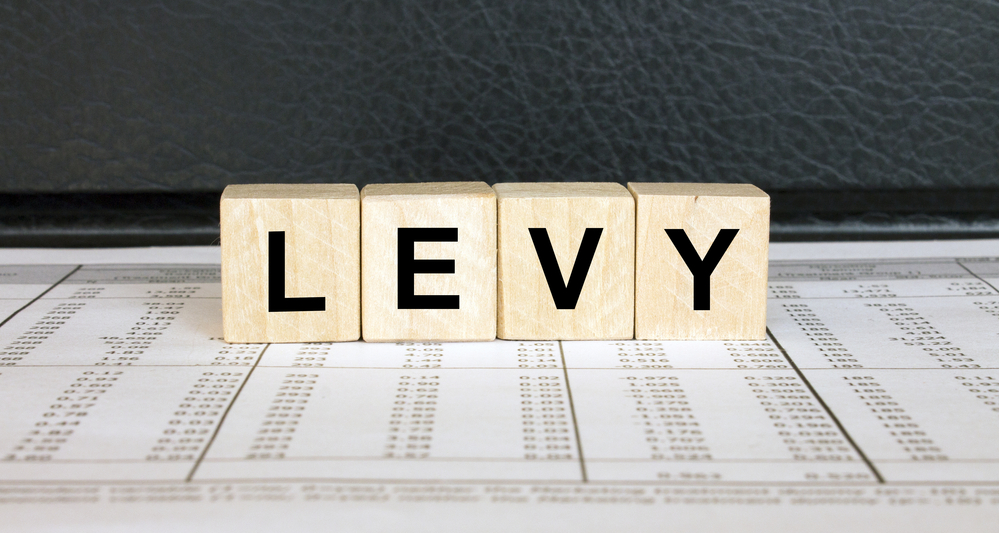What Types of Accounts May Be Subject to a Tax Levy?
- Jan 01, 2023
 Falling behind on your taxes is an incredibly stressful experience—especially when your debt has progressed to the point of collection actions from the IRS. If you’ve owed taxes to the IRS for some time, it’s possible for them to place a tax levy on your assets. But what kinds of accounts can they legally levy in order to collect on your tax debt? Keep reading to find out more about which of your assets may be subject to an IRS tax levy.
Falling behind on your taxes is an incredibly stressful experience—especially when your debt has progressed to the point of collection actions from the IRS. If you’ve owed taxes to the IRS for some time, it’s possible for them to place a tax levy on your assets. But what kinds of accounts can they legally levy in order to collect on your tax debt? Keep reading to find out more about which of your assets may be subject to an IRS tax levy.
Existing Bank Accounts
Any existing funds in your bank accounts can be subject to a tax levy. This includes checking and savings accounts, regardless of what bank or state your accounts are held in. The only funds in a bank account that may be protected from a bank levy are funds that were not in the account at the time the levy was enforced. So, if the IRS places a levy on your savings account and you add more funds into that account, those funds would not be subject to the tax levy.
Future Income Owed to You
In addition to your existing funds, the IRS can also levy income that is owed to you in the future. You’re likely aware of wage garnishment, in which the IRS can collect money from your paycheck before you even receive payment. In addition to this, they can also levy future income such as retirement account funds and rental income. This can be particularly frightening for those individuals who are approaching their retirement years; having your retirement accounts levied by the IRS can drastically alter your plans for a secure future.
Physical Properties You Own
While most people think of a levy in relation to bank accounts, a levy can also be placed on physical property that you own. This can include everything from cars and jewelry to the house you live in. The IRS will always place a tax lien on your property before proceeding to a levy, so if you do receive notice of a lien on your home or other property, you should take action to settle your taxes before the issue progresses to a levy.
It’s important to remember that while a tax lien formally acknowledges that IRS’s financial interests in your property, a tax levy would allow them to take action and sell your property in order to collect on your tax debt. It’s a far more serious step, and one you don’t ever want to deal with.
How to Protect Your Accounts and Property
So, how can you protect your assets from being subject to a tax levy? Obviously, the best route is to never fall behind on your taxes; but this isn’t always possible for everyone. Sometimes, you are going to owe more than you can afford to pay. The good news is, there is a path to settling your tax debt without facing a tax levy on your property.
The IRS offers several debt settlement and payment plans for taxpayers to sort out their tax debt. So long as you approach the IRS with open and honest communication, there is a very good chance that you will qualify for one of these debt relief programs. If you owe more in taxes this year than you can afford, it’s important to open up a line of communication with the IRS as soon as possible.
We recommend working with a tax debt specialist from our team here at IRS Advocates. We’re experienced at handling these kinds of debts and ensuring that you apply for the correct tax settlement program, based on your financial circumstances. If you apply and qualify for a tax repayment program, your accounts and properties will not be subjected to a tax levy for as long as you remain in good standing on your payment plan.
Contact Us to Get Help Settling Your Tax Debt
At the IRS Advocates, we understanding that working with the IRS can be confusing and intimidating—not to mention incredibly time consuming. We’re here to help make it easier to apply for the right tax settlement plan for you, and improve your chances of qualifying for a tax relief program. Contact us today to speak with one of our tax debt advocates. We’ll discuss your financial circumstances and the amount that you owe to the IRS; then, we’ll help you select and apply for the best tax settlement plan for you. Call now to schedule a consultation with your advocate.
STOP THE IRS!
Settle for less & Protect your assets
Never Call the IRS without Speaking with our Pros First!